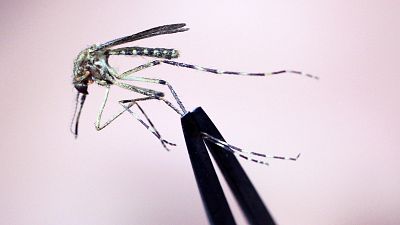A recent study found that people who slept extra hours on weekends were up to 20 per cent less likely to develop heart disease compared to those who didn’t.
Catching up on missed hours of sleep during the weekend might be more beneficial than it seems.
A large new study revealed that sleeping in on weekends may help mitigate risks associated with sleep deprivation.
The new findings, which were presented at a meeting of the European Society of Cardiology, showed that people who got extra sleep lowered their risk of heart disease by up to 20 per cent.
“Sufficient compensatory sleep is linked to a lower risk of heart disease,” Yanjun Song, the author of the study from the National Centre for Cardiovascular Disease and Fuwai Hospital in Beijing, China, said in a statement.
“The association becomes even more pronounced among individuals who regularly experience inadequate sleep on weekdays,” he added.
According to the US Centers for Disease Control and Prevention (CDC), adults who sleep for fewer than seven hours each night are more likely to experience health problems that impact their heart, raising the risk of heart disease, heart attacks, and strokes.
The study used data from nearly 91,000 people in the UK Biobank project, a large database containing health information from half a million people in the UK, to assess whether catching up on sleep during the weekend affects the risk of heart disease.
The researchers considered those who reported getting fewer than seven hours of sleep a night as sleep-deprived, accounting for 19,816 of the participants or roughly 22 per cent of the total.
They then examined the participants’ medical records over a period of almost 14 years to determine who developed heart problems such as heart disease, heart failure, irregular heartbeat, or stroke.
Participants were divided into four groups based on how much extra sleep they had during the weekend.
The group with the most weekend sleep was defined as having between 1.28 to 16.06 hours of additional sleep on weekends compared to their weekday sleep.
Those with the least extra sleep on weekends actually lost between 16.05 to 0.26 hours of sleep.
The researchers found that participants who reported getting the most compensatory sleep on weekends were 19 per cent less likely to develop heart disease compared to those who lost sleep during weekends.
In the subgroup of people with daily sleep deprivation, the study found that people who caught up the most on sleep over the weekend had a 20 per cent lower risk of heart disease than those who caught up the least.
The study did not find any significant differences in these results between men and women.
“Our results show that for the significant proportion of the population in modern society that suffers from sleep deprivation, those who have the most ‘catch-up’ sleep at weekends have significantly lower rates of heart disease than those with the least,” Zechen Liu, a co-author of the study also from China’s Fuwai Hospital and National Centre for Cardiovascular Diseases, said in a statement.















